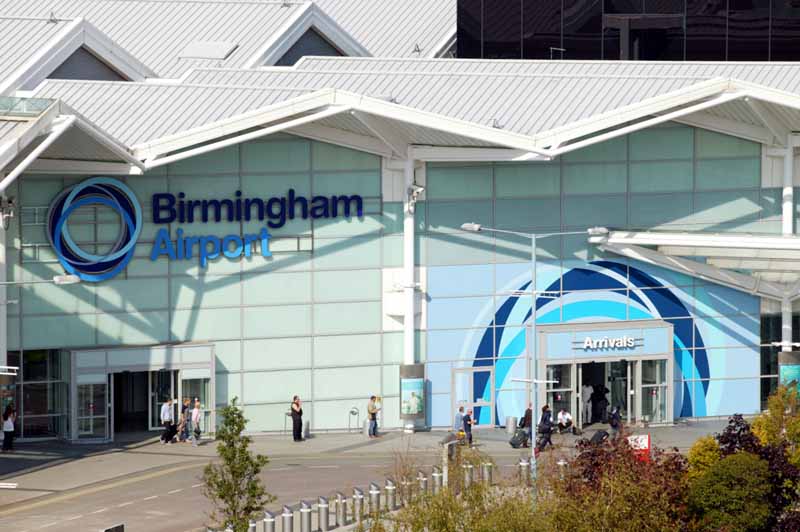Birmingham Airport, together with a coalition of business leaders and local councils, will today (10 June) unveil a vision that would enable the Airport to grow in line with future demand, boosting global connectivity and creating over a quarter of a million new jobs in the Midlands, helping to rebalance the UK economy.
This vision supports growth of up to 70 million passengers each year and up to 500,000 air transport movements from an expanded facility. The Airport’s vision supports the development of a business park for the Midland’s manufacturing sector alongside the expanded site, and one of Europe’s biggest conference centres at the NEC, all based at the cross-roads of Britain’s road and rail systems.
The Airport’s long-term vision is a response to questions asked by the Airports Commission, which is examining the need for additional UK airport capacity and will recommend to Government how this can be met in the short, medium and long-term.
Paul Kehoe, CEO of Birmingham Airport, said: “Great cities like Birmingham deserve great airports. In twenty years’ time British air travel will double and it is widely acknowledged that all the country’s long-haul traffic cannot be routed through one airport in West London.
“Instead, we believe that the best thing for UK aviation is to create a network of long-haul national airports, each supporting the comparative economic advantages of that region to boost trade, foreign investment and tourism.”
A high proportion of the country’s potential demand for business air travel comes from the Midlands catchment area. It is home to half a million businesses, 6.5 million employees and specialises in high-value manufacturing sectors.
Expanding Birmingham Airport alongside the M42 gateway project and High Speed Two is a once in a generation opportunity to meet the UK’s aviation capacity needs.
The Airport’s vision is for London, Birmingham and Manchester to all have the great long-haul airports that they need to succeed, whilst at the same time providing flexibility and resilience for the UK aviation sector.
The network proposal excludes expansion at Heathrow because that would expose too many people living in West London to unacceptable noise pollution. However, the network complements a new mega-hub in the South East or a more dispersed model.
With its excellent transport links, long-haul runway and spare capacity for 27 million passengers, Birmingham Airport has been arguing to the Commission that it can offer much-needed capacity in the short-term. This recent announcement gives Birmingham the ability to play its part in the long-term strategy too.
Mark Garnier MP, Conservative MP for Wyre Forest and Chair of the West Midlands APPG said: “A global travel hub at Birmingham Airport will bring long-haul air-travel to within one hour of the airport for 45 million people by 2032 when the HS2 network is fully operational. This will make it the most accessible airport in Britain”.
Sir Albert Bore, Leader of Birmingham City Council said: “This vision will help bring trade and prosperity for Britain’s industrial base in the Midlands, just as Heathrow has helped the high-tech concentration along the ‘M4 corridor’ and helped support the global position of The City.”
Jerry Blackett, chief executive of the Birmingham Chamber of Commerce said: “At a time of our manufacturing renaissance, it makes no sense for business people to traipse to London to travel to major markets overseas. To succeed, our business people need direct, convenient flights to visit suppliers and clients in major new markets like China and India.”
Key facts:-
- In 2011, 3 million business trips were made from Birmingham Airport. Economic consultancy Capital Economics, has predicted that by 2032 the Airport could serve up to 18m business travellers, second only to Heathrow.
- Birmingham Airport’s catchment has the second biggest demand for business travel. It has 500,000 businesses in its catchment, second only to Heathrow at 600,000.
- The majority of these are high-value manufacturing companies that currently export goods valued at £25.1 billion each year to long-haul markets without direct air links.
- Three million business people from the Airport’s catchment travel to Heathrow each year, adding unsustainable pressure and clogging up the road and rail network.
- Over the next 20 years annual passenger numbers will increase by 220 million passengers and yet plans for an additional runway at Heathrow only offers additional capacity for 20 million passengers.
More information can be found at www.balancedaviationdebate.com






“Vision”.
How pathetic this delusion of blinkered minds is.
“Resilience”, “balanced economy”, “long-term”.
Please tell me where the affordable fuel for this fantasised future growth will come from, once the one last spare Iraq is exhausted (in a few years) and the shale-oil and gas-fracking hype gets exposed for what it is (in a few years at most)?
Please show me how or where you will source enough oil for less than $80 a barrel (in contrast to former $20-30 prices) anytime soon.
Please tell me who will be able to afford any journeys let alone more, when the unpreventable global downsizing (we are already seeing) has continued for another five years.
“In twenty years’ time British air travel will double”.
Fueled by mere delusions in the absence of any actual physical fuel at affordable price. Far more likely is that air travel will have completely ceased within one decade let alone two.
But at least our “leaders” can show us how to pedestrianise Corporation Street by adding two steep railway lines going down it, so perhaps they are just so much cleverer than the rest of us can understand?
I agree with Mr Clarke, the airport expansion submission is mere wishful thinking, hype and presentation, low on facts without a grasp on reality. Why will people travel more than they do now, its actually more likely that they will travel less. We will need the airport land to grow food and live on, and all the people living nearby will appreciate less planes and less noise.